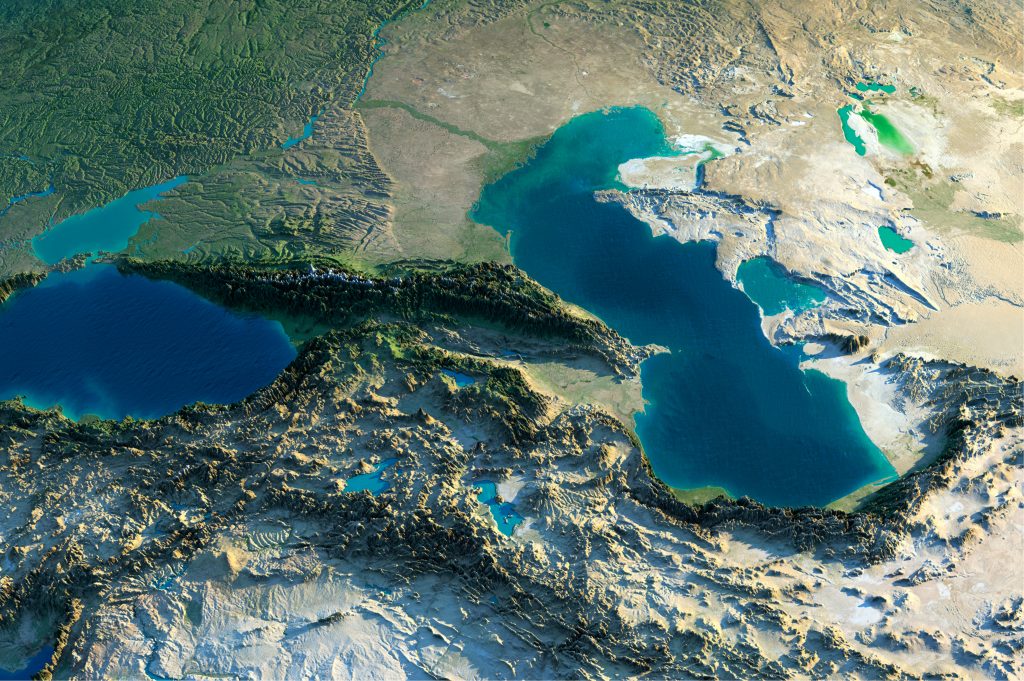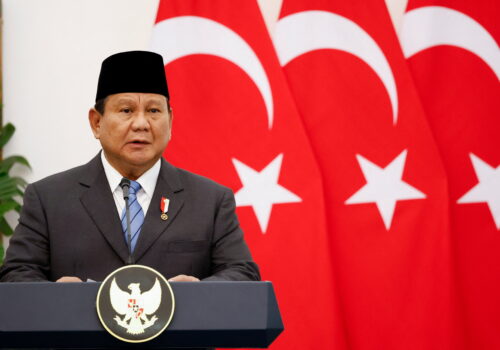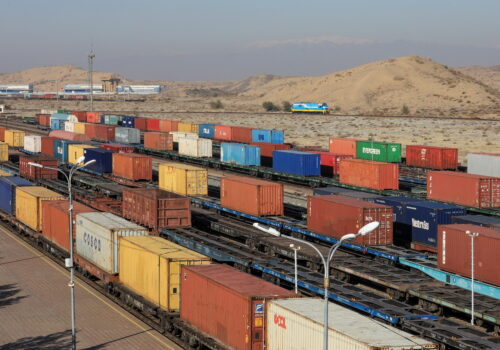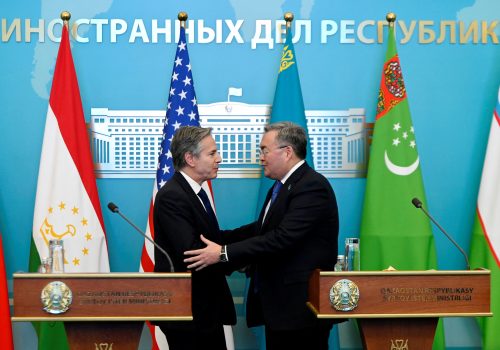The South Caucasus region is undergoing a period of strategic transition, shaped by shifting regional dynamics and the realignment of global powers.
In the region, the interests of key actors—including Russia, Iran, Turkey, and European powers—are converging.
The United States may need to reassess its regional strategy, as Russia’s sustained focus on the conflict in Ukraine presents a potential window of opportunity, during which regional powers, including Iran, are seeking to expand their influence. US engagement in the South Caucasus can help foster stability, enhance connectivity, and promote long-term strategic balance. And in doing so, the second Trump administration would support Washington’s strategic interests to contribute to a multipolar and balanced regional environment.
An entirely new landscape
Historically, the South Caucasus has not been a priority in US foreign policy calculations. Previous US approaches to the region reflected broader priorities, such as reducing overseas commitments and focusing on more transactional partnerships. Yet over the past several years, events that have played out in the region—including the 2020 war between Armenia and Azerbaijan, the shifting strategic policies of South Caucasus states, and broader geopolitical changes—have created a new landscape.
Following the 2020 conflict, Azerbaijan regained control over the Karabakh region and surrounding territories. Turkey supported Azerbaijan during the conflict and has since deepened its strategic alignment with Baku. In contrast, Russia—despite, at the time, being a formal ally to Armenia through the Moscow-led Collective Security Treaty Organization—opted not to intervene directly. These shifts disrupted existing regional equilibriums and prompted each of the South Caucasus states to reassess their foreign policy orientations.
Iran’s engagement in the region has become more visible. Iran appears to view the developments with concern, especially as Azerbaijan has been strengthening ties with Turkey and Israel, particularly given the countries’ shared border and the strategic implications for Iran’s northwestern frontier. Armenia, by contrast, has traditionally served as a critical corridor for Iranian trade and outreach into the South Caucasus. As such, Tehran has sought to reinforce its economic and diplomatic ties with Yerevan while expressing skepticism toward regional initiatives that could bypass Iran. At the same time, Iran’s coordination with Russia has grown, particularly through military technology transfers and joint initiatives during Russia’s war in Ukraine. These linkages have implications for the broader security environment across the Caucasus and beyond.
As international efforts are being made to settle the war, Moscow’s regional posture has changed, though the changes are probably temporary. The diversion of military resources from the South Caucasus to the Ukrainian front, combined with the pressures of sanctions and domestic fatigue, has temporarily reduced Russia’s influence in the region. The possibility of the return of Russian engagement in the region, however, should not be discounted. While Russia may be constrained in the short term, its long-term strategic interests in the South Caucasus are unlikely to diminish. As such, regional actors appear to be seeking to diversify their partnerships while preparing for a potential reassertion of Russian influence.
In March, Armenia and Azerbaijan announced the finalization of a peace agreement—an important milestone that could bring a measure of stability to the region. Though significant hurdles remain, and the implementation process may be gradual and complex, the agreement signals a readiness by both sides to pursue a more predictable regional order. This development opens the door to potential collaboration in areas such as trade, connectivity, and cross-border coordination. It also offers an opening for external actors, including the United States, to support initiatives that reinforce long-term peace.
Peace between Armenia and Azerbaijan could also contribute to a recalibration of the two countries’ foreign policy trajectories. Armenia, with its expectations from traditional security partners unmet, is increasingly open to diplomatic and economic diversification. Azerbaijan continues to build on its partnership with Turkey while remaining attentive to regional sensitivities and the need to balance its strategic autonomy. Recently, it was reported that Azerbaijan has been acting as a mediator between Turkey and Israel, which might also serve US interests in stabilizing the Middle East and preventing potential clashes.
How Washington should engage
Looking ahead, a key objective for US engagement should be to contribute to a multipolar and balanced regional environment—one in which no single outside power holds disproportionate influence. Such an approach aligns with the interests of all three South Caucasus states, each of which has sought to maintain strategic flexibility in a complex neighborhood. Rather than favoring one actor over another, US policy can support cooperative initiatives that reduce dependencies and encourage regional self-reliance.
In the long term, this can be achieved by promoting trilateral cooperation between Armenia, Azerbaijan, and Georgia in areas such as transportation, energy infrastructure, and economic development. A web of shared interests can serve as a foundation for resilience against external pressures while also reducing the likelihood of future conflict. Such efforts do not necessarily require formal alliances or institutions but can emerge through sustained dialogue, confidence-building, and coordinated investment. Georgia, Azerbaijan, and Armenia held their first-ever trilateral meeting, which could be a sign that the region is going in this direction. The United States should not miss this opportunity to engage in a more unified South Caucasus.
Turkey’s expanding role in the South Caucasus, alliance with Azerbaijan, growing diplomatic engagement with Armenia, and longstanding connections with Georgia position Ankara as a central actor in the region. Turkey has also demonstrated renewed cooperation with European powers, as illustrated by recent trilateral military discussions involving the United Kingdom and France. These developments point toward a greater integration between Turkey and Europe, which may extend into the South Caucasus.
The United States can coordinate with Turkey on infrastructure, energy, and security issues in the region while encouraging constructive regional relationships. Facilitating such progress will not require a direct US presence, but rather calibrated engagement and support for regionally led initiatives.
Engaging the South Caucasus and ensuring regional stability is important for US interests, particularly for its interests in nearby Central Asia. The United States and also the European Union are looking to certain countries, such as those in Central Asia, for partnership as a way to diversify energy sources and supply chains, for example for critical minerals. That interest has been demonstrated by developments including an announcement by Uzbekistan’s trade ministry that the country signed critical-mineral agreements with US companies and recent European visits to and partnerships with countries in Central Asia and the South Caucasus. Energy and supply-chain diversification will require enhancing east-west corridors, which itself will require cooperation from South Caucasus states and Turkey. The recent agreement between Azerbaijan, Kazakhstan, and Uzbekistan on exporting renewable energy to Europe could be an important development in that regard. Europe is becoming more interested in energy deals with the South Caucasus as well, as shown by European Commissioner for Energy and Housing Dan Jørgensen’s visit to Baku in April. US engagement can complement European initiatives by ensuring that strategic infrastructure projects, such as Azerbaijan’s Zangezur transport corridor, contribute to regional stability and openness.
The corridor, in particular, holds strategic potential. If implemented effectively, it could connect Azerbaijan and its exclave Nakhchivan more closely and strengthen Turkey’s (and, in turn, Europe’s) access to Central Asia. The corridor is viewed with skepticism by Iran, which sees it as reducing its role in regional trade. However, from the standpoint of regional economic diversification, the project could contribute to a more competitive and resilient logistical network.
The Trump administration’s emerging policy approach—which so far appears to favor bilateral agreements, infrastructure-driven engagement, and a focus on energy security—resonates with these emerging trends. By emphasizing pragmatic cooperation and avoiding entanglement in regional disputes, the administration can help shape a more open and strategically aligned South Caucasus.
Practical steps that could be taken include supporting the signing of a peace agreement between Armenia and Azerbaijan, facilitating energy and transit cooperation involving all three South Caucasus states, backing Turkish and European initiatives that enhance connectivity, and engaging in quiet diplomacy to support regional de-escalation.
The United States should engage in the South Caucasus; doing so can help the region become a model of multipolar engagement, where external powers converge constructively, while reducing the risk of disproportionate sway from one or two neighboring actors.
Ali Mammadov is a PhD researcher at George Mason University’s Schar School of Policy and Government focusing on global stability, alliance formation, and rising powers. You can find him on X.
The views expressed in TURKEYSource are solely those of the authors and do not necessarily reflect the views of the Atlantic Council, its staff, or its supporters.
Further reading
Mon, Apr 14, 2025
There are signs that Turkey is growing closer to Indonesia—and to ASEAN
TURKEYSource By
The Indonesian president's latest visit to Turkey is only one sign that relations between the two countries are strong—and growing.
Wed, May 22, 2024
There’s an alternative to Russian-based trade routes—but it needs support from the US, EU, and Turkey
TURKEYSource By Arnold C. Dupuy
The Middle Corridor can offer an alternative to the Russian-based Northern Corridor, as long as countries can surmount these remaining challenges.
Mon, Aug 14, 2023
The United States can’t offset its rivals in Central Asia alone. Turkey can help.
TURKEYSource By
Turkey is well-positioned to counter US rivals in Central Asia by expanding its influence and diversifying the region's partners.
Image: Exaggerated precise relief of the Caspian Sea and the Caucasus (Anton Balazh/NASA/ShutterStock)




